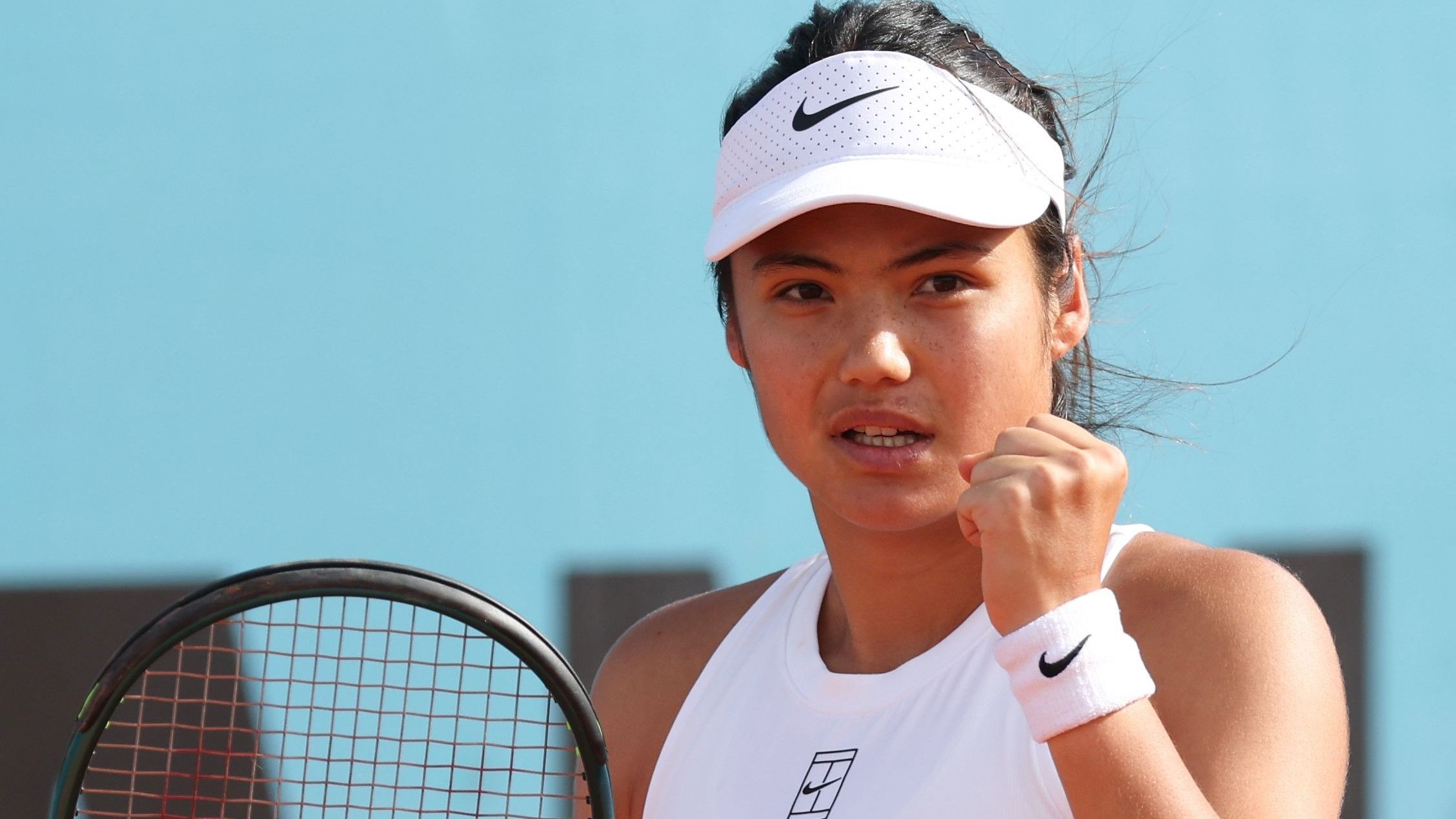The Dark Side of Fame: Why Iga Świątek’s Security Measures Were Intensified

The world of professional tennis is often viewed as a glamorous spectacle, showcasing elite athletes competing on the grandest stages. However, beneath the dazzling lights and roaring crowds lies a darker reality—one that involves player safety, personal security, and the unfortunate reality of harassment. Recently, World No. 1 Iga Świątek found herself in a distressing situation that highlights the growing need for heightened security in professional sports. The Miami Open turned into an unsettling experience for the Polish tennis star as she became the target of stalking and harassment, prompting tournament organizers to take immediate action.
A Frightening Ordeal: What Happened to Iga Świątek?
Reports surfaced that Świątek was subjected to persistent stalking by an unidentified individual throughout the Miami Open. The incident not only affected her emotional well-being but also disrupted her focus on the competition. Security personnel noticed suspicious behavior from a fan who appeared to follow the 22-year-old through various parts of the tournament venue, including practice sessions and hotel premises. As a result, authorities stepped in to increase security around Świątek, ensuring her safety as she continued her campaign in the tournament.
This alarming episode sheds light on the increasingly invasive nature of celebrity fandom, where admiration sometimes crosses into obsession, creating hazardous situations for athletes. Świątek, known for her composed demeanor on and off the court, handled the situation professionally, but it undoubtedly impacted her sense of security and concentration.
The Growing Concern of Player Safety in Tennis
Świątek’s ordeal is not an isolated case. The world of professional tennis has witnessed numerous incidents where players—especially female athletes—have been targeted by overly enthusiastic or dangerous individuals. The rise of social media has exacerbated this issue, providing stalkers with easier access to personal details and movements of their favorite athletes.
Past Incidents in Professional Tennis
The history of tennis has seen disturbing cases of player harassment and stalking:
- Monica Seles Attack (1993): One of the most infamous incidents in tennis history occurred when Monica Seles was stabbed by a deranged fan during a match in Hamburg, Germany. The attacker, an obsessed fan of Steffi Graf, altered the trajectory of Seles’ career forever.
- Serena Williams’ Stalker (2018): The 23-time Grand Slam champion had to obtain a restraining order against a man who believed they were in a romantic relationship, despite never having met her.
- Petra Kvitová’s Home Invasion (2016): Although not related to stalking, Kvitová was brutally attacked in her home by an intruder, highlighting the dangers high-profile athletes face.
These cases underline the urgent need for stronger security measures in professional tennis. With the sport’s increasing global popularity and the accessibility of athletes through digital platforms, protective measures must evolve to safeguard players from potential threats.
How Tennis Organizations Are Addressing Player Security
The WTA, ATP, and tournament organizers have been stepping up efforts to ensure player safety, but as incidents like Świątek’s continue to arise, there is still work to be done. The key security measures include:
- Increased On-Site Security – Tournament officials are assigning personal security personnel to high-profile players, ensuring close monitoring during matches, practice sessions, and media appearances.
- Enhanced Hotel Safety Protocols – Many players have reported concerns about hotel security, leading to tighter access restrictions and surveillance.
- Stronger Digital Privacy Protections – Social media has become a significant tool for stalkers, prompting organizations to work closely with athletes to minimize the sharing of sensitive personal information online.
- Legal Action Against Stalkers – Tennis bodies are encouraging players to take legal action against individuals who exhibit threatening behavior, ensuring that these cases are taken seriously by law enforcement.
Świątek’s Response and the Impact on Her Performance
Despite the distressing nature of the situation, Świątek maintained professionalism and resilience, emphasizing her commitment to competing at the highest level. However, even the most mentally strong athletes can be affected by off-court distractions. The psychological toll of harassment can manifest in many ways, including increased anxiety, loss of focus, and emotional distress.
Fans and analysts have noted how Świątek’s usually sharp, aggressive play seemed somewhat affected in Miami. While she remains a dominant force on tour, such incidents serve as unwanted disruptions to an athlete’s routine and mental fortitude.
The Importance of Mental Health and Athlete Safety
The discussion surrounding Świątek’s harassment incident also brings into focus the broader topic of mental health in sports. The intense scrutiny, relentless media attention, and pressure to perform at an elite level already place enormous stress on professional athletes. When issues like stalking and harassment enter the equation, the mental well-being of players must be prioritized.
Several top athletes, including Naomi Osaka, Simone Biles, and Michael Phelps, have spoken openly about mental health struggles in professional sports. The additional burden of dealing with safety concerns only exacerbates these challenges.
How Fans Can Support Athletes While Respecting Boundaries
Fans play a crucial role in an athlete’s career, providing motivation and energy through their support. However, there must be a clear distinction between admiration and intrusion. Here’s how tennis enthusiasts can ensure they support players while respecting their privacy:
- Respect Personal Boundaries – Attending matches, cheering, and interacting on social media should never cross into personal invasions.
- Avoid Harassing or Overbearing Behavior – Overzealous admiration can make players feel uncomfortable, even if the intent is harmless.
- Report Suspicious Activity – If fans notice unusual behavior in stadiums or online, reporting it to the appropriate authorities can help ensure player safety.
Final Thoughts: A Wake-Up Call for Tennis Security
The Iga Świątek stalking incident at the Miami Open serves as a stark reminder of the vulnerabilities that professional athletes face. While the spotlight of fame brings admiration, it also invites risks that require proactive security measures. The response by tournament officials in enhancing Świątek’s security is commendable, but it also underscores the need for continuous vigilance and stronger protocols across the sport.
Tennis is a beautiful game that captivates millions, but the well-being of its stars must remain a top priority. As the sport continues to evolve, so too must the strategies to protect players from potential threats, ensuring they can focus on what truly matters—their performance on the court.

What’s Next for Świątek?
With the incident behind her, Iga Świątek will shift her focus to upcoming tournaments, determined to maintain her position at the top of the WTA rankings. As she continues her journey, fans and tournament officials alike must ensure that she and all other players compete in an environment that is safe, respectful, and free from fear.
What do you think? Should tennis organizations implement stricter security measures for players? Let us know your thoughts!


